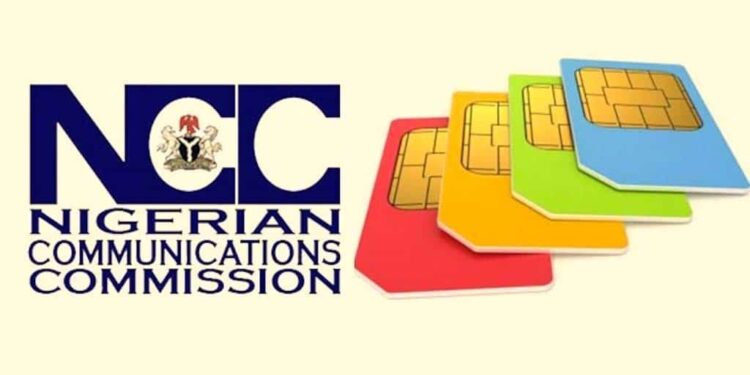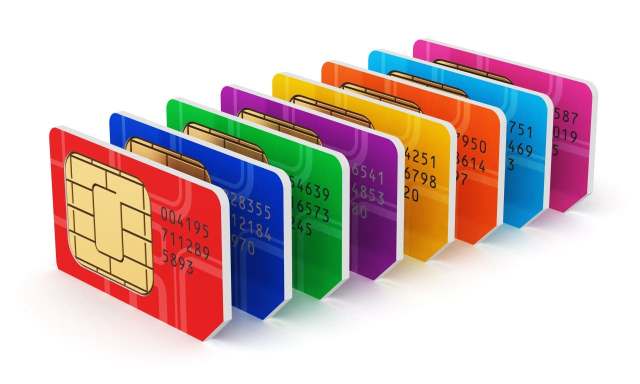Looking at the pervasive insecurity in the nation at the moment, it will be right to say that the NIN-SIM Linkage Policy wasn’t a bad idea at all but for the sloppiness with which it was introduced by a former minister who literally slapped it on Nigerians as a necessity that must be executed within two weeks.
Although the Nigerian Communications Communications (NCC) initiated an industry SIM registration process to capture the identity of phone users since 2011, the new policy would ensure that every phone line is properly matched with a national identity number with the full compliments of registration – picture and digital imprints – for the line to function. Quite simple, it looks but the implementation would indicate otherwise.
A unique selling point of the policy was that it would guarantee consumer protection and crime prevention, support crime resolution and enhance national security by strengthening crime enforcement agencies to tackle the criminal use of mobile phones, stimulate a digital economy through online and digital transactions, while also promoting e-governance which will encourage the various tiers of government to do things differently by breaking from tedious bureaucracy.
Instead of allowing technocrats in the civil service and industry experts to promote the idea, a minister shopping for achievements, as an industry voice would observe, simply sat on the driving seat pushing a process for which he was hardly prepared. And the results came, very adversely.
But there were problems ab initio. One. The idea was not properly thought through as the two weeks ending December 2020 was too small for such a huge project. Eh em, a project must have timelines, a beginning and plausible end. This one was amorphous, plainly amorphous. Two. It was the COVID-19 period and it smacked of absolute insensitivity for anybody to encourage a mass gathering of Nigerians at service centres in the name of NIN-SIM Linkage. Three. Data-weary or data-drunk Nigerians were simply tired of being pushed around after bank verification number (BVN) and other identity collection processes they have had to go through. And four. The capacity of the primary implementation agency, NIMC, was exaggerated. Apprehension reigned and it is still reigning.
For instance, over three years down the line, a project that should have ended in two weeks is not half done. And the process continues to convolute.
But there is an interesting story of a group of people finding strength in adversity or in anything that threatens their survival. The various stakeholders expressed a camaraderie in action. Knowing there would be challenges in the way, they bandied together to resolve issues before they ballooned into big problems. They set up registration centres and even built capacity in the implementation agency with monies running into several billions of Naira.
However, the security situation in the country gives no indications that the above measures have worked at all. Children are being kidnapped in hundreds from their schools and there are killings going on in different parts of the country. Phones are used to negotiate ransoms and nobody is apprehended. The NCC is under pressure to take urgent measures to stem the tide although the regulator has no network of its own.
As the regulator, the NCC holds the yam and the knife and has never been reticent in slicing pieces to whoever it wants. It also holds the stick to whip operators into line. Media headlines demonstrate the capacity of the NCC to take certain measures even if they hurt.
A particular headline stated, “SIM-NIN linkage: NCC rules out extension, telcos bar 12 million lines.” The NCC directive was effective February 28, 2024.
Referencing this action, President of the Association of Licensed Telecommunications Operators of Nigeria (ALTON) Engr Gbenga Adebayo, disclosed that “About 12 million SIM cards may not have been linked to NIN. Some of these SIM cards work on modems and mifi devices. According to the regulatory directives, those numbers that are not properly linked to NIN will have services withdrawn to them by midnight today. We stand by that regulatory directive and we are going to comply.”
Good speaking in the face of very serious implications. Some of these lines were high revenue yields. The operators would have to lose that money. The subscribers would have to bear the inconvenience of such disconnection. And insecurity continues because such complex issues are not resolved with deus ex machina.
This writer gathered that the NCC, working closely with the telecoms service providers, may have carried out a number of regulatory decisions subterraneously without puffing the smoke of such action in public. While a subscriber could hold four SIMs on each network in line with international best practices, the regulator, after some detailed auditing of the networks, was confronted with a situation where some individuals had as many as 100SIMs, 1000SIMs and even 10,000 SIMs all at a go.
Pray! What does an individual have to do with 10,000 SIMs? Contemplating the grave security challenges that such unsavoury development could portend, the NCC has had to quickly weed those numbers out from the database of the various networks.
While Adebayo may have spoken very boldly about complying with regulatory directives of the NCC on NIN-SIM linkage, what appears troubling is that the service providers in the country have been holding the short end of the stick even at grave financial and material losses.
For instance, by way of protecting their business, the operators had to set up thousands of NIN Enrolment Centres at their service centres to facilitate seamless NIN acquisition by the citizenry. This has not provided the magic wand, however. One can inform here that the next puzzle was that NIMC did not have the capacity to process the data being captured in these centres.
It is not news any more that the telecom operators had to provide some technical support for NIMC, the government agency entrusted with curating the identity details of the citizenry. In a particular instance, MTN shelled out a billion Naira after an initial two hundred million that vanished like a drop in the ocean. Others provided sundry support.
What is clear about NIMC at the moment is not a sudden return to efficiency but the appointment of a new head in Engr Bisoye Coker-Odusote who has promised to clean up the rot in the place and position it for performance. With such disposition, it will be an overkill to continue to flagellate NIMC except to wait for what may seem a moment of magic from the new chief executive.
In this story, there is a government under pressure to save the people from security nightmares, there is a regulator that superintends a vital link in the security architecture (if you accommodate the cliche), and there is a NIMC that manages the nation’s identity, with the operators being the last in the chain. This writer has been informed that the nation’s security apparatus occupies an overarching position in this chain but how well it has deployed the technology available in the telecom networks can only be explained, perhaps, by the security challenges in nearly all parts of the country.
My take is that the NIN-SIM linkage is a story in search of a good ending or, if you like, a proper denouement. For this to happen the relevant stakeholders need some moments of self introspection, to examine their ways and resolve to do things with more creativity. Urgently, NIMC needs more help from the government and industry as it has noticeably remained a disastrous link in the entire value chain . The operators who are appealing to the regulator for more time before putting a final ban on lines without linkages, should be able to project a time for the process to embrace a closure. Or should the exercise last forever!
I am quite aware of the various efforts the regulator has canvassed to ensure the process remains seamless and less burdensome. Even then, it should not be too stiff-necked to listen to complaints, observations and suggestions. For instance, it is common knowledge that the process has wobbled because NIMC, which is an agency of government, lacked capacity or even the sincerity to conduct such a sensitive exercise. My sympathy therefore, is with the operators when they beg for more time or extension before lines are barred or even make some other demands. The operators don’t need to suffer losses because of the failure of an agency of government. They too need a fair hearing and proper representation in this NIN-SIM linkage story that has no end.



